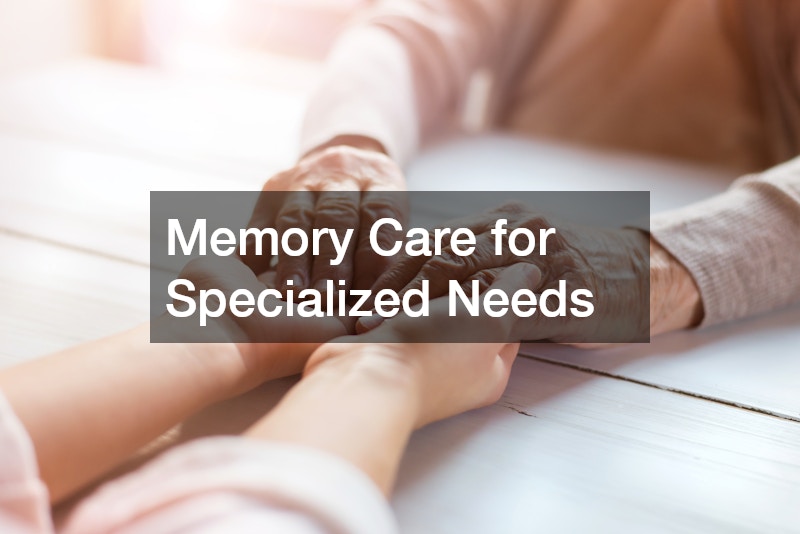
As our parents age, there comes a time when they may need assistance in navigating the challenges of senior living. Whether it’s adapting their home for safety, preserving their independence, or planning for the future, there are many considerations to take into account. These decisions can feel overwhelming for both parents and children alike, as they involve a delicate balance of maintaining dignity, ensuring comfort, and providing the necessary support. In this comprehensive guide, we will explore various aspects of helping your parents transition into senior living with ease and grace. We’ll address practical solutions such as home modifications, senior care services, and legal preparations, offering you actionable advice to support your parents through this important stage of life.
Adapting Your Home for Safety and Mobility
When it comes to ensuring the safety and mobility of your aging parents, consider installing devices such as a chair lift to help them navigate stairs with ease. Making simple modifications to their home can make a big difference in their quality of life and overall well-being. By taking proactive steps in adapting to their living environment, you can provide peace of mind for both you and your loved ones.
Assess the layout of their home and identify potential hazards or obstacles that may impede their mobility, such as loose rugs, narrow doorways, or poor lighting. Consult with professionals to determine the best solutions for their specific needs and budget constraints. Taking time to address safety concerns now can prevent issues in the future, saving both time and money down the road.
Helping your parents adjust to these changes may require patience and understanding. Encourage open communication and involve them in the decision-making process to ensure their comfort and satisfaction. Acknowledge feelings of loss or resistance and offer reassurance that these modifications are intended to help them stay independent for as long as possible. By working together, you can create a safer and more accessible home environment that promotes independence and autonomy.

Preserving Their Independence in Daily Life
One of the key goals in helping your parents navigate senior living transitions is preserving their independence in daily life. Explore options for independent living arrangements that allow them to maintain a sense of autonomy while receiving necessary support and assistance. By empowering your parents to make their own choices and decisions, you can promote their emotional well-being and self-esteem.
Encourage them to participate in activities that they enjoy and are capable of doing independently. Foster a sense of purpose and fulfillment by engaging them in meaningful hobbies or social interactions. By creating a supportive environment, you can help your parents maintain a sense of control and dignity as they age.
Stay attuned to their changing needs and be ready to adjust your approach as necessary. Offer encouragement and reassurance as they navigate new challenges and transitions. By providing emotional support and practical assistance, you can help your parents preserve their independence and quality of life.
Choosing the Right Services
When it comes to helping your parents by selecting senior care services, it’s essential to consider their unique needs and preferences. Research different options such as in-home care, assisted living facilities, or nursing homes to determine the best fit for their situation. Consult with healthcare professionals and trusted advisors to make informed decisions that prioritize their well-being.
Ensure that the services you choose align with your parents’ preferences, values, and expectations. Arrange for a consultation or tour of potential facilities to assess the quality of care and amenities offered. By conducting thorough research and asking relevant questions, you can make confident choices that benefit your loved ones in the long run.
Coordinate with caregivers and service providers to create a comprehensive care plan that addresses all aspects of your parent’s health and safety. Stay informed and involved in their care to ensure that their needs are met and that they receive the support they require. By choosing the right services, you can help your parents thrive in their senior years.

The Importance of Planning
When it comes to helping your parents navigate senior living transitions, estate planning is a crucial aspect that should not be overlooked. Discussing topics such as wills, trusts, and powers of attorney can provide peace of mind for both you and your loved ones. Consult with legal professionals to create a plan that safeguards your parents’ assets and ensures their wishes are honored.
Estate planning involves more than just financial matters—it also includes healthcare directives and end-of-life planning. Encourage your parents to express their wishes regarding medical treatment and care preferences in advance. By having these conversations early on, you can avoid misunderstandings and conflicts in the future.
Make sure that important documents such as wills and healthcare proxies are up to date and accessible when needed. Keep copies of these documents in a safe place and inform key family members or advisors of their whereabouts. By taking proactive steps in estate planning, you can help your parents prepare for the unexpected and navigate transitions with confidence.
Exploring Assisted Living
For seniors who require additional support and supervision, assisted living facilities offer a comfortable and secure living environment. Consider exploring various options in senior living communities to find a place that meets your parents’ needs and preferences. Tour different facilities and assess their amenities, staff qualifications, and resident satisfaction levels.
Assisted living communities provide a range of services such as meal preparation, housekeeping, medication management, and social activities. Ensure that the facility you choose offers personalized care plans tailored to your parents’ specific requirements. Many communities also offer access to healthcare services, ensuring your parents’ physical and emotional well-being is supported. By selecting a reputable and well-managed community, you can provide peace of mind for your loved ones and yourself.
Involve your parents in the decision-making process and respect their input when choosing an assisted living facility. Address any concerns or reservations they may have and work together to find a place that feels like home. Allow them to visit communities, participate in social events, and get a feel for the environment. By exploring options together, you can help your parents transition smoothly and comfortably to their new living arrangements.

Memory Care for Specialized Needs
For seniors with Alzheimer’s disease or other forms of dementia, specialized memory care assisted living facilities offer tailored support and programming. Consider seeking out facilities with dedicated memory care units that focus on providing individualized care and enhancing quality of life. Consult with healthcare professionals and memory care specialists to explore the most suitable options for your parents.
Memory care facilities offer specialized services such as cognitive therapies, memory-enhancing activities, and sensory stimulation programs. Ensure that the staff members are trained in dementia care and have experience working with patients with cognitive impairments. By choosing a memory care facility that prioritizes safety, comfort, and dignity, you can provide the best possible care for your loved ones.
Stay engaged in your parents’ care and visit them regularly to offer emotional support and companionship. Keep communication lines open with the facility staff and provide updates on your parents’ preferences and needs. By advocating for your parents, you can help them live with dignity and respect.
The Emotional Impact of Downsizing
As your parents transition to a smaller living space or assisted living facility, the process of downsizing can be emotionally challenging for them. You can start helping your parents navigate this transition by offering support, understanding, and patience. Assist in sorting through their belongings and deciding what to keep, donate, or sell. If needed, consider hiring a senior move service to help manage the physical aspects of the move. This will make it easier for both you and your parents.
Recognize that downsizing may bring up feelings of loss, nostalgia, or anxiety for your parents. Encourage them to reminisce about memories associated with their possessions and validate their emotional reactions. Be patient and empathetic as they adjust to a new living environment.
Consider involving other family members or friends in the downsizing process to share the workload and emotional burden. Create a supportive and collaborative atmosphere that prioritizes your parents’ well-being and comfort. By acknowledging the emotional impact of downsizing and offering compassionate assistance, you can help your parents transition with greater ease and resilience.

The Growing Demand for Senior Living
With the aging population and increasing life expectancy, there is a growing demand for high-quality senior living options. Stay informed about trends in senior living construction and development to ensure that your parents have access to innovative facilities. Research different senior living communities and explore their offerings to find a place that suits your parents’ preferences.
Consider factors such as location, amenities, healthcare services, and affordability when evaluating senior living options. Engage with real estate professionals and retirement community representatives to gather information about potential housing solutions. By staying proactive and informed, you can help your parents make informed decisions about their future living arrangements.
Advocate for the needs and preferences of your parents when considering senior living options. Seek out facilities that prioritize safety, comfort, and quality of life for residents. By understanding the growing demand for senior living and exploring options, you can start helping your parents transition to a supportive and enriching living environment.
Finding the Right Attorney
When it comes to estate planning and legal matters, finding the right attorney is essential in helping your parents protect their assets and ensure their wishes are honored. Look for a will and trust attorney with experience in elder law and estate planning to guide you through the process. Schedule consultations with potential attorneys to discuss your parents’ needs and goals.
Verify the credentials and reputation of the attorney to ensure they have the expertise and professionalism necessary for handling complex legal matters. Request references or testimonials from previous clients to gauge the attorney’s track record of success and client satisfaction. By choosing a reputable and knowledgeable attorney, you can entrust your parents’ legal affairs to a competent and trustworthy professional.
Collaborate with the attorney to create a comprehensive plan that addresses your parents’ financial, healthcare, and end-of-life wishes. Stay informed about changes in laws or regulations that may affect their estate plan and make adjustments as needed. By working with a qualified attorney, you can help your parents secure their legacy and plan for the future.
The Role of Estate Planning
In the complex and ever-changing landscape of estate planning, an experienced estate planning lawyer can be a valuable resource in helping your parents navigate legal matters. Engage with an attorney who specializes in estate planning to develop a customized plan that meets your parents’ unique needs and goals. Seek out professional guidance on wills, trusts, probate, and other legal documents to ensure compliance with state laws.
Consult with the estate planning attorney to discuss strategies for minimizing estate taxes, protecting assets, and outlining inheritance plans. Review existing documents and update them as necessary to reflect changes in your parents’ circumstances or wishes. By leveraging the expertise of a skilled attorney, you can create a robust estate plan that safeguards your parents’ interests and provides clarity for their beneficiaries.
Maintain open communication with the attorney and schedule regular reviews of the estate plan to address any new developments or concerns. Stay proactive in managing your parents’ legal affairs and seek advice from professionals on important decisions that may impact their estate. By collaborating with a knowledgeable estate planning attorney, you can help your parents achieve peace of mind and security.
Helping your parents navigate senior living transitions can be a daunting but rewarding experience. By focusing on adapting their home for safety, preserving their independence, choosing the right services, and planning for the future, you can provide invaluable support and guidance to your loved ones. Explore various options in assisted living, memory care, and estate planning to create a comprehensive care plan that meets your parents’ needs and desires.
Remember to stay informed, engaged, and compassionate throughout the process, and seek professional assistance when necessary. By working together with your parents and trusted advisors, you can ensure that they receive the care and support they deserve as they age. With careful planning, empathy, and patience, you can help your parents transition into senior living with grace and dignity.

